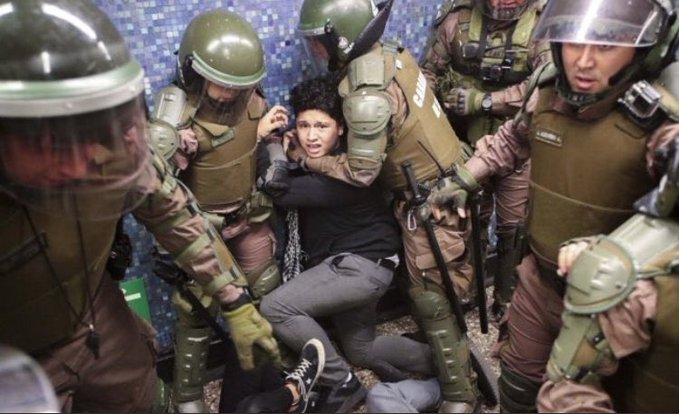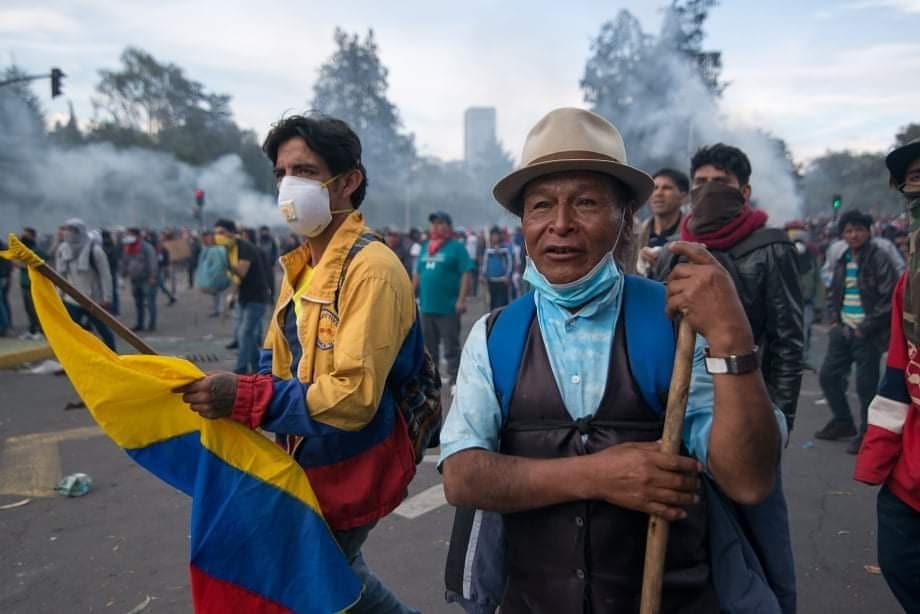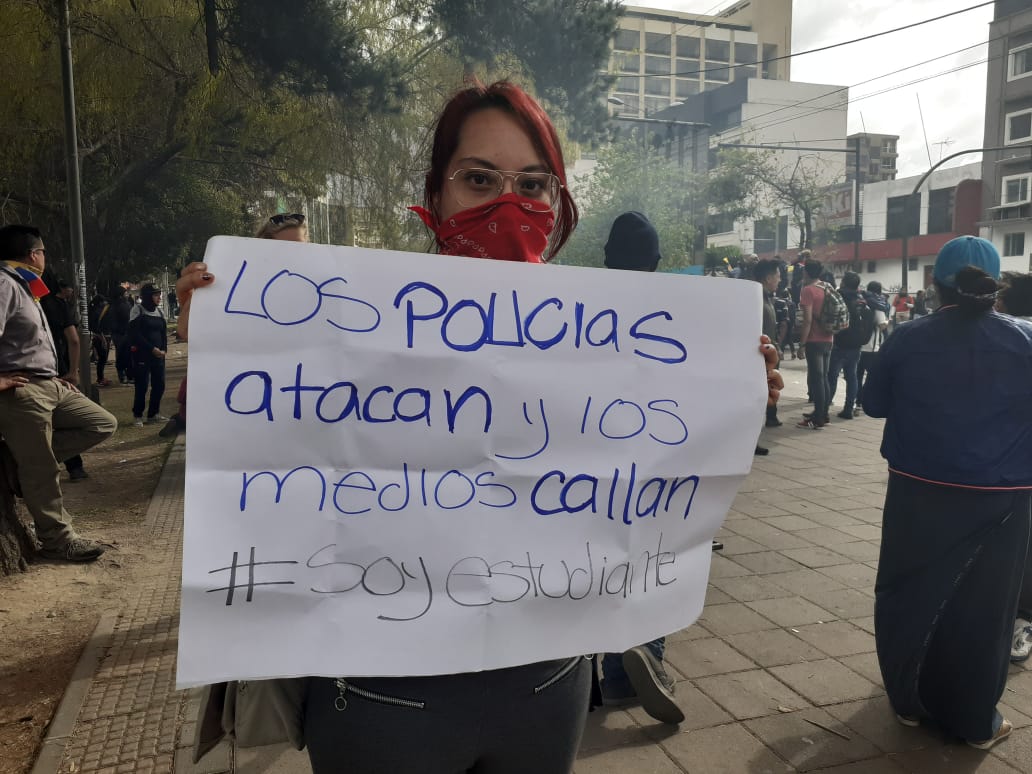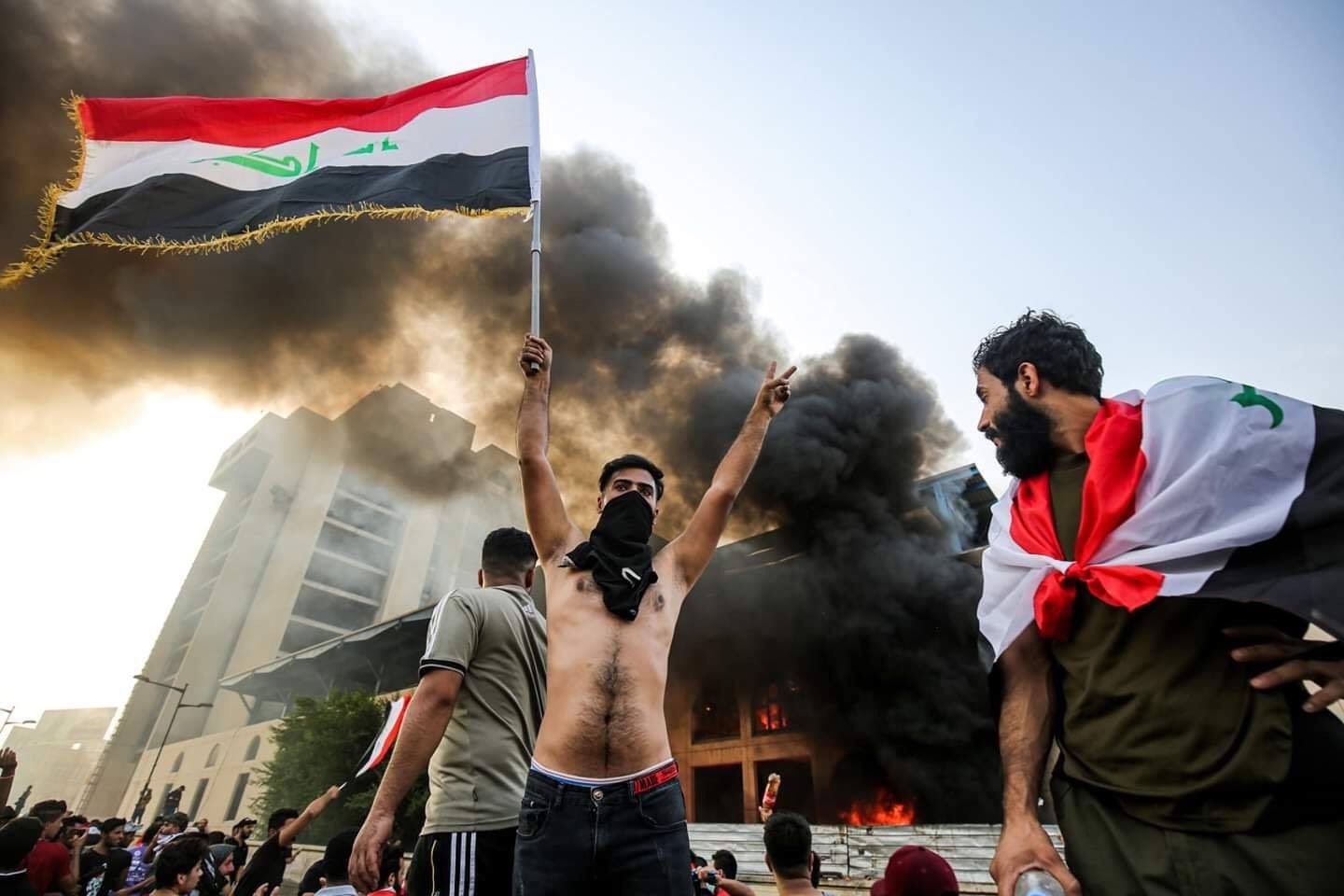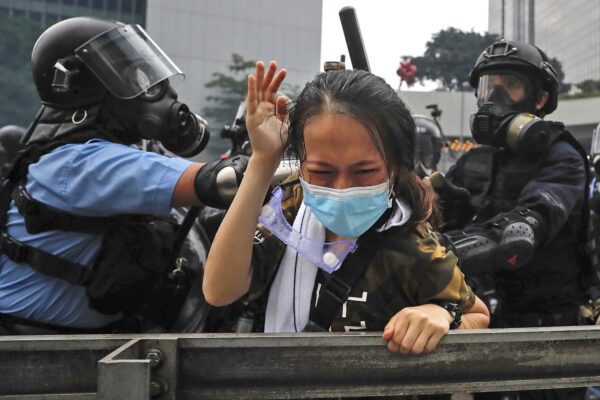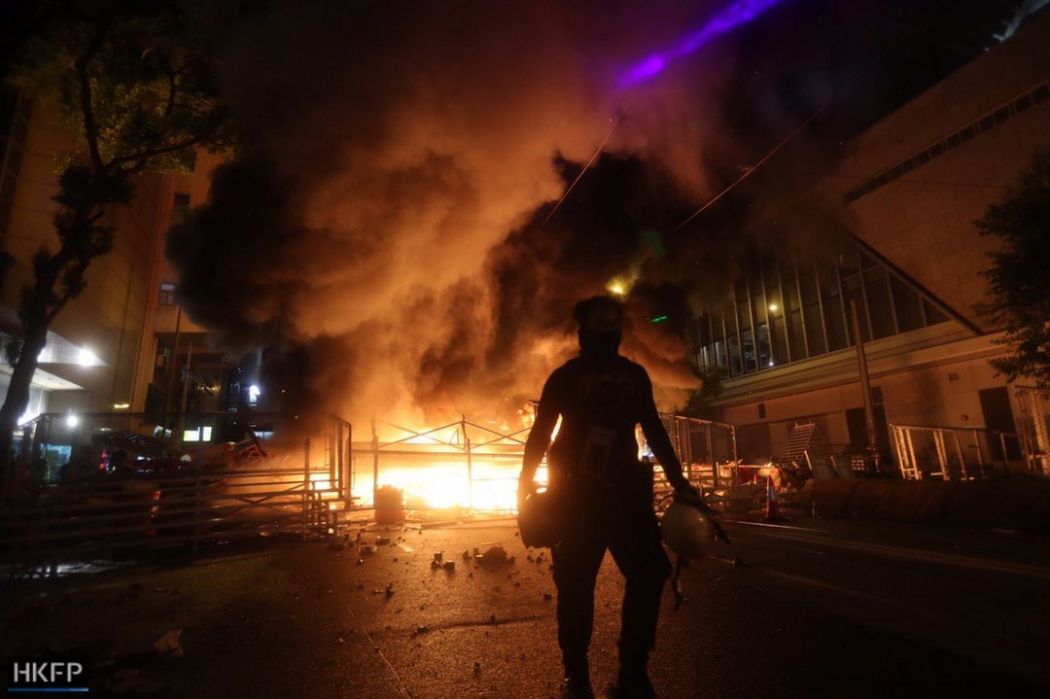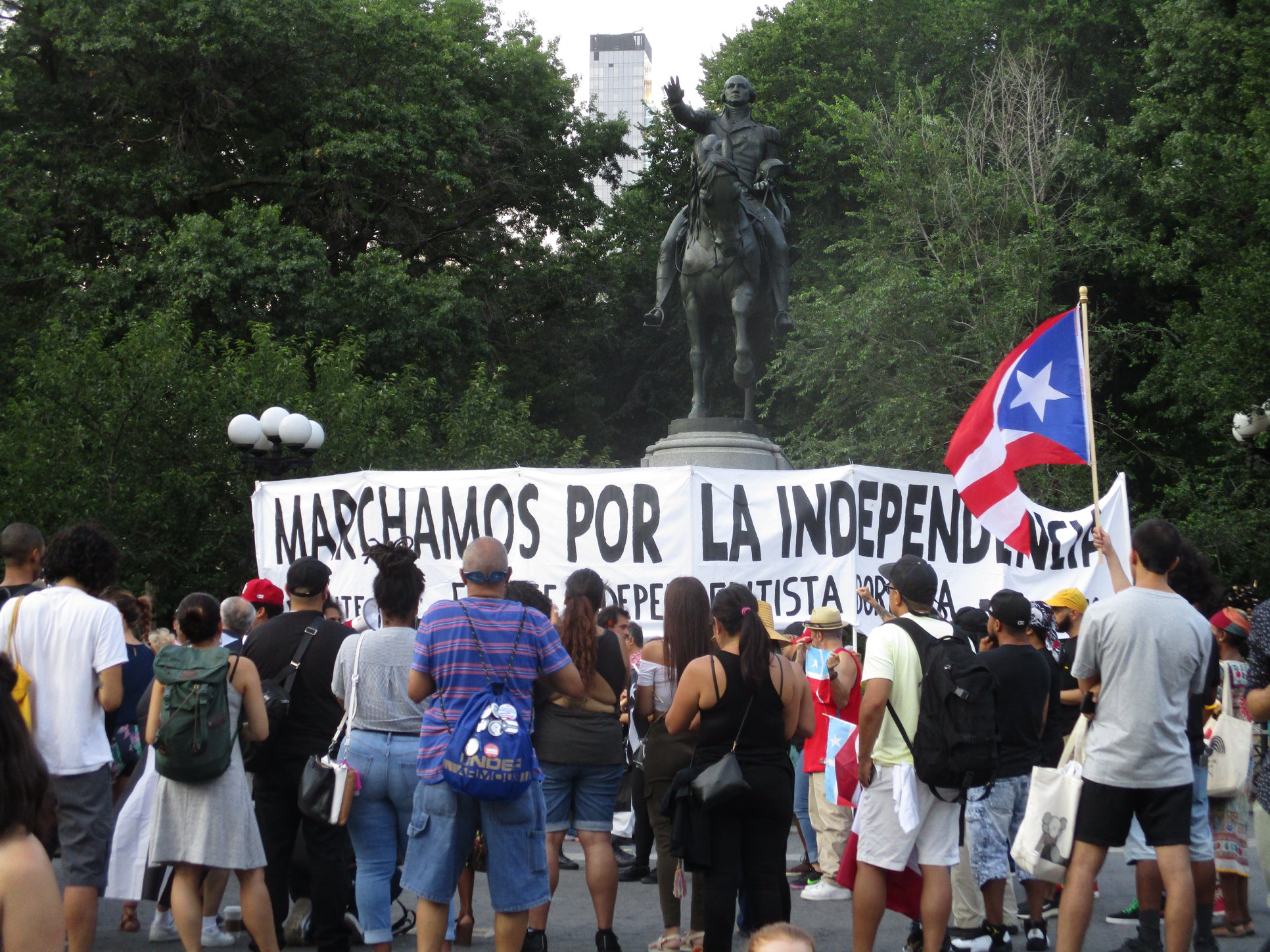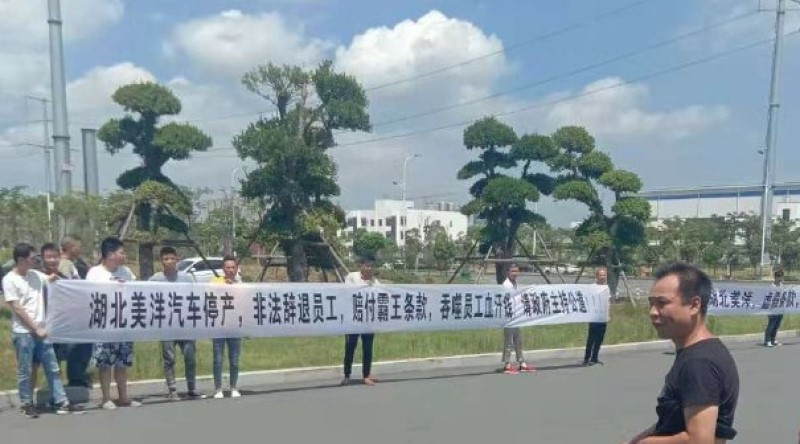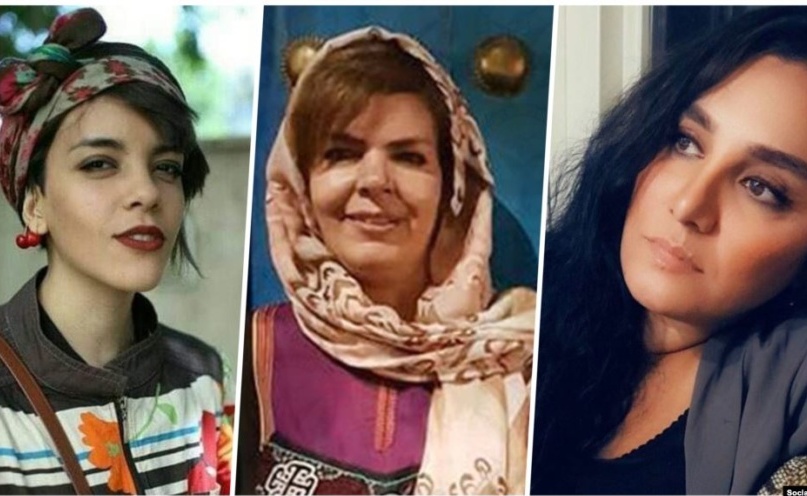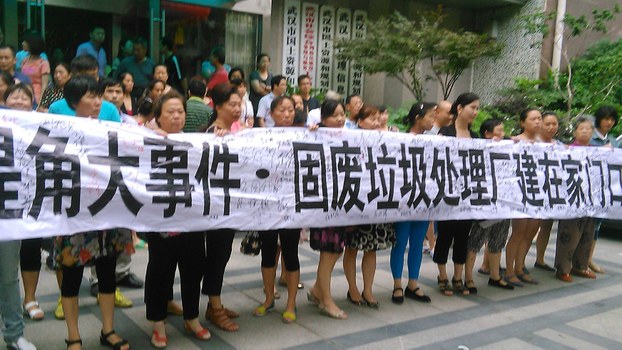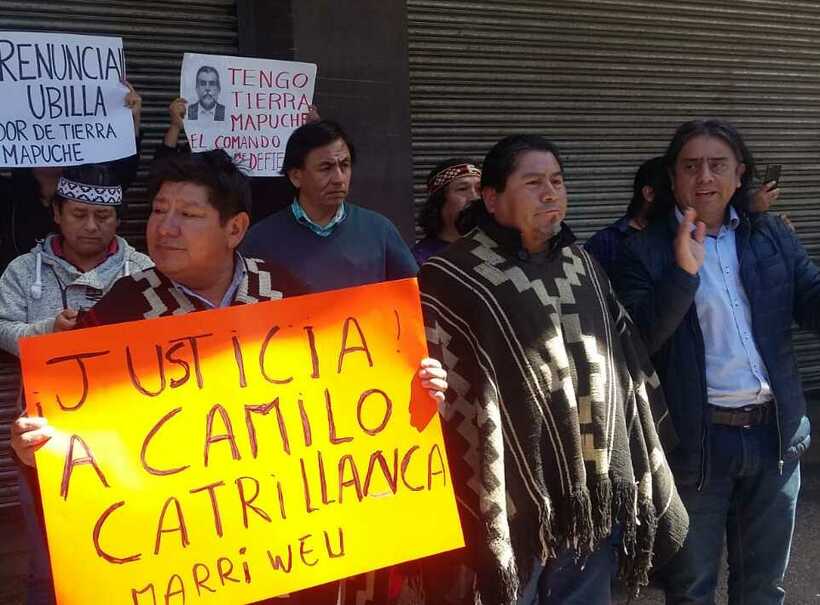
Chile: Mapuche join protest mobilization
Leaders of Chile’s Mapuche indigenous people announced their support for the massive protests that are sweeping the country, saying they will press their demands for local autonomy in their traditional territories. Aucán Huilcamánn of the Consejo de Todas las Tierras (Council of All Lands) made the declaration in the city of Temuco, Araucanía region, standing beside Marcelo Catrillanca—father of a young Mapuche man killed by the paramilitary Carabineros last year, an outrage that sparked local protests. Camilo Catrillanca was shot in the back last November while working his lands in the community of Temucuicui. He had been driving his tractor away from an outpost of the Carabineros’ Special Police Operations Group (GOPE)—the same elite force that now being unleashed on protesters in Chile’s cities. Four ex-Carabineros have been arrested in the case. (Photo: Soy Chile)



